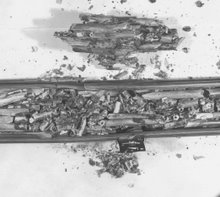Lightning is also the centerpiece of the next several entries in this blog. Here is my perspective on this including further documentation.
“Bill LaValle – If this is not a significant event, than maybe I should be out of this business! Suggest we send the completed form to INPO. Leyse 27 Aug 1980”
Why did INPO originally stiff-arm my finding that the Salem lightning strike was indeed a Significant Event? I submitted my write-up on August 12, 1980, and INPO rejected it that same day. INPO had no logic in its rejection; it was a brief and emotional response. As I found out about two years later, NSAC went along with INPO’s rejection. So why did INPO react so quickly and emotionally in its rejection, and why, about four years later, did INPO finally publish a Significant Event Report that apparently covered lightning strikes at several units including Salem-1?
Here is my recent perspective. During August 1980, INPO existed for less than one year, and its staff refused to report the Salem-1 lightning strike as a Significant Event because they feared the reaction of the Admiral who ran the place. The nuclear power utilities set up INPO because Jimmy Carter’s Kemeny Commission mandated the formation of something like INPO. The utilities also knew that in the public’s view, Rickover was unimpeachable. The utilities then used Rickover as a public relations tool when they selected his choice, an Admiral Wilkinson, to dominate INPO. Wilkinson was obviously a master of the Rickover games.
Now, a lot has been written about folk hero Rickover, but much of it is not concretely documented. However, here is some concrete evidence of Rickover in action. Following is a direct quote from the book by John W. Simpson, Nuclear Power from Underseas to Outer Space, American Nuclear Society, 1994.
From page 79:
“AI-W had its share of Rickover incidents. He liked to put people down and make them feel their lack of expertise. At one meeting on reactor metallurgy, John Steifel, the project manager was the victim. The meeting convened late in the afternoon, broke for dinner, then continued into the evening. All during this time Rickover told Steifel to sit in one corner of the room and to not interrupt. Phil Ross, Steifel’s right hand man on technical matters, was told to do the talking – even at dinner. Rickover wanted to give the impression that he considered Steifel a technical idiot.”
So, that is mode of domination that the staff at INPO was facing when they feared disclosing the lightning strike at Salem-1 as a Significant Event. After a few years, INPO’s first leader completed his tour of duty, and his replacement was likely less treacherous. INPO then became free to recognize that lightning strikes led to Significant Events at nuclear power plants and it issued INPO Significant Event Report SER 76-84.
I’m still trying to get a copy of SER 76-84. INPO and EPRI have not acknowledged my request, and the NRC is working on my appeal for its release under FOIA.
Tuesday, August 5, 2008
Subscribe to:
Post Comments (Atom)

No comments:
Post a Comment